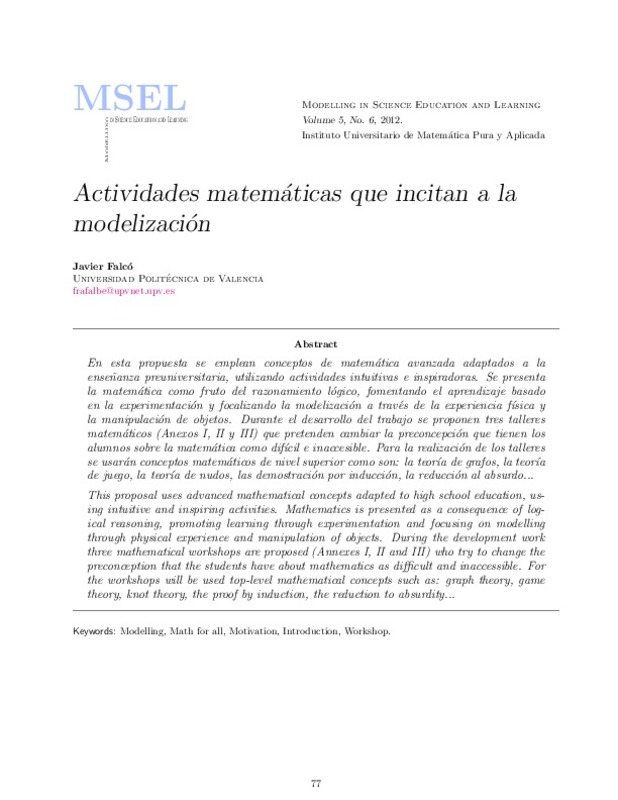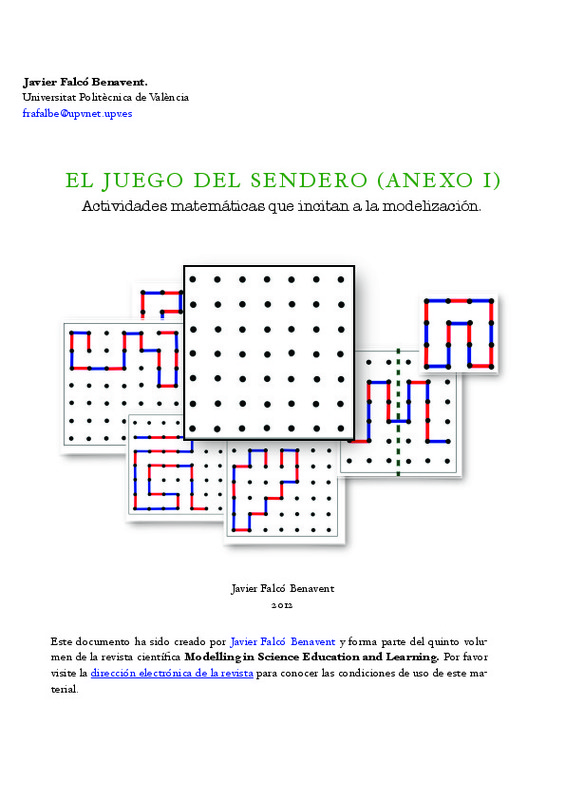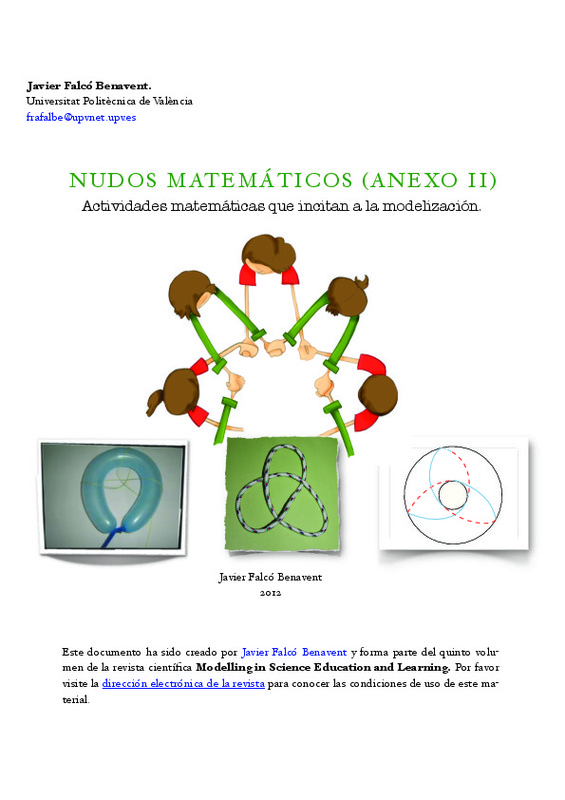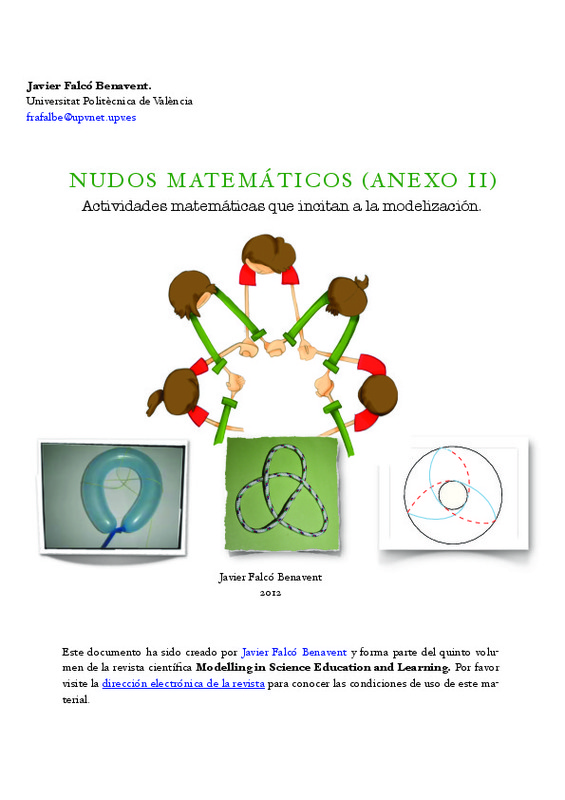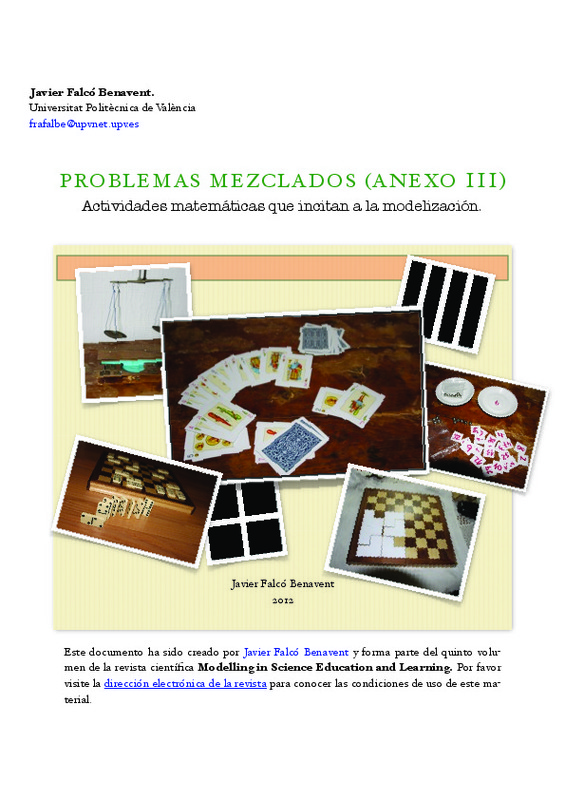JavaScript is disabled for your browser. Some features of this site may not work without it.
Buscar en RiuNet
Listar
Mi cuenta
Estadísticas
Ayuda RiuNet
Admin. UPV
Actividades matemáticas que incitan a la modelización
Mostrar el registro sencillo del ítem
Ficheros en el ítem
| dc.contributor.author | Falcó, Javier
|
es_ES |
| dc.date.accessioned | 2018-04-23T11:04:24Z | |
| dc.date.available | 2018-04-23T11:04:24Z | |
| dc.date.issued | 2012-04-05 | |
| dc.identifier.uri | http://hdl.handle.net/10251/100880 | |
| dc.description.abstract | [EN] This proposal uses advanced mathematical concepts adapted to high school education, using intuitive and inspiring activities. Mathematics is presented as a consequence of logical reasoning, promoting learning through experimentation and focusing on modelling through physical experience and manipulation of objects. During the development work three mathematical workshops are proposed (Annexes I, II and III) who try to change the preconception that the students have about mathematics as difficult and inaccessible. For the workshops will be used top-level mathematical concepts such as: graph theory, game theory, knot theory, the proof by induction, the reduction to absurdity... | es_ES |
| dc.description.abstract | [ES] En esta propuesta se emplean conceptos de matemática avanzada adaptados a la enseñanza preuniversitaria, utilizando actividades intuitivas e inspiradoras. Se presenta la matemática como fruto del razonamiento lógico, fomentando el aprendizaje basado en la experimentación y focalizando la modelización a través de la experiencia física y la manipulación de objetos. Durante el desarrollo del trabajo se proponen tres talleres matemáticos (Anexos I, II y III) que pretenden cambiar la preconcepción que tienen los alumnos sobre la matemática como difícil e inaccesible. Para la realización de los talleres se usarán conceptos matemáticos de nivel superior como son: la teoría de grafos, la teoría de juego, la teoría de nudos, las demostración por inducción, la reducción al absurdo... | es_ES |
| dc.language | Español | es_ES |
| dc.publisher | Universitat Politècnica de València | |
| dc.relation.ispartof | Modelling in Science Education and Learning | |
| dc.rights | Reconocimiento - No comercial (by-nc) | es_ES |
| dc.subject | Modelling | es_ES |
| dc.subject | Math for all | es_ES |
| dc.subject | Motivation | es_ES |
| dc.subject | Introduction | es_ES |
| dc.subject | Workshop | es_ES |
| dc.title | Actividades matemáticas que incitan a la modelización | es_ES |
| dc.type | Artículo | es_ES |
| dc.date.updated | 2018-04-23T10:22:48Z | |
| dc.identifier.doi | 10.4995/msel.2012.2135 | |
| dc.rights.accessRights | Abierto | es_ES |
| dc.description.bibliographicCitation | Falcó, J. (2012). Actividades matemáticas que incitan a la modelización. Modelling in Science Education and Learning. 5:77-91. https://doi.org/10.4995/msel.2012.2135 | es_ES |
| dc.description.accrualMethod | SWORD | es_ES |
| dc.relation.publisherversion | https://doi.org/10.4995/msel.2012.2135 | es_ES |
| dc.description.upvformatpinicio | 77 | es_ES |
| dc.description.upvformatpfin | 91 | es_ES |
| dc.type.version | info:eu-repo/semantics/publishedVersion | es_ES |
| dc.description.volume | 5 | |
| dc.identifier.eissn | 1988-3145 | |
| dc.description.references | Colins, Adams. (2004) Why knot?: an introduction to the mathematical theory of knots, Key College. | es_ES |
| dc.description.references | Garner, Martin (1995). Circo matemático. Alianza Editorial. | es_ES |






